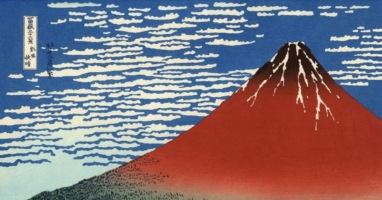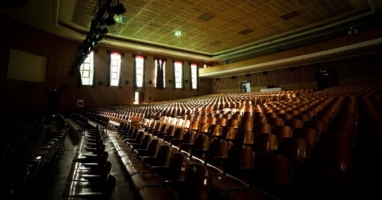I wrote this article in Japanese and translated it into English using ChatGPT. I also used ChatGPT to create the English article title. I did my best to correct any translation mistakes, but please let me know if you find any errors. By the way, I did not use ChatGPT when writing the Japanese article. The entire article was written from scratch by me, Saikawa Goto.
Introduction
Movies and books covered in this article

Three takeaways from this article
- What does “something that is not sifted by forgetting is not culture” mean?
- To have a common base for dialogue and creation, “being forgotten” is essential.
- It doesn’t mean that what remains is great, or that what is forgotten is bad.
Self-introduction article


Published Kindle books(Free on Kindle Unlimited)
“The genius Einstein: An easy-to-understand book about interesting science advances that is not too simple based on his life and discoveries: Theory of Relativity, Cosmology and Quantum Theory”
“Why is “lack of imagination” called “communication skills”?: Japanese-specific”negative” communication”
The quotes in the article were translated using ChatGPT from Japanese books, and are not direct quotes from the foreign language original books, even if they exist.
Arguing that Electronic Data Has the “Disadvantage of being ‘Unforgettable,'” Explaining the Essence of “Filtering” that Culture Has

This book is a work in which two book enthusiasts discuss the value of “paper books”.

However, it is not a simple tribute to “paper books” as is often the case. In this book, they view the present day as follows:
We are facing the challenge of the digitization of documents and the introduction of new reading tools on a global scale.
And in addition to that, they point out that “paper books” have the value of “being forgotten” compared to “electronic data”. I think this is a difficult argument to understand, but reading this book will make you feel like “I see” and you will also touch on the essence of “culture”.

The word “filtering” appears in this book in the following form.
Books has survived the calamity of filtering, and in the end, it has managed to get through all the nets that have been cast, and survived luckily and sometimes unluckily.
And this is precisely the essence of the value of oblivion.

This pointing out is never limited to just “books”. In a world where all “culture” is being digitized, this book is sounding an alarm that the essential value of culture may be lost.

Let’s take a look at their argument about “paper books”, which despite sharing this crisis, looks like it’s going to be fun somehow.

The Value of Culture Called “Forgetting”
First, let me have you read the following passage.
We know everything about Caesar’s last wife Calpurnia until March 15, the day Caesar was assassinated. On March 15, Calpurnia had a bad dream and asked her husband not to go to the Senate.
There is no information about Calpurnia after Caesar’s death. She disappeared from our memory. Why? It’s not just because she was a woman. (omission) That’s what culture is, to sift. On the contrary, modern culture is scattering detailed information about all Calpurnias in the world every second via the internet, so if a child does research for school homework, they may think Calpurnia is as important a person as Caesar. (Umberto Eco)
Nothing is known about Caesar’s wife after his death. This doesn’t mean that “nothing was said about her.” Probably something was said and there must have been documents recording it. However, it did not survive to this day.

In this book, the loss of information that was (might) recorded is referred to as “forgetting”. The subject of “forgetting” is “culture”. This can be inferred from the sentence in the quote, “That’s what culture is, to sift.”
In other words, the argument being made here is that “culture sifts through forgetting.” To put it more plainly, “what is not selected is not culture.”
Therefore, if we accept this argument, we would conclude that “electronic data is not ‘culture’.” This is because electronic data is “fundamentally information that is not lost.”

There is of course the possibility that information in electronic data could be lost, but the important point is that “we believe that ‘electronic data’ will not be lost”. Perhaps such an environment has never been realized in the history of mankind. He suggests that this may have resulted to make the important essence that “it is a culture” loss.
The idea that “culture performs filtering” might be a bit confusing, so let’s think about the meaning of “filtering” in a clearer way by comparing “paper books” and “online articles”.

The publication of a “paper book” can be seen as the ultimate result of “filtering”. Only “those that the publisher expects to sell” or “those judged to be worth preserving for posterity, even though they may or may not sell a lot” are turned into books. Furthermore, “paper books” are physically limited by the number of pages they can have. It’s impossible to increase the number of pages beyond the limit of bookbinding. This means that what to write about must also be narrowed down.

On the other hand, there is no “filtering” like that of a “paper book” for e-books and online articles. Even if it is unclear whether they will sell or not, they can still be uploaded, and there are no limits on the amount of content. Without passing through the barrier of “filtering”, everything can be on the same stage.

When considering this, one might feel that there is some truth to the claim that “anything not selected is not culture” regarding “electronic data.”
Furthermore, “electronic data” has the characteristic of being recorded automatically. Information such as crime prevention camera footage, GPS route records, and online shopping order histories have increased even without the existence of a subject thinking “let’s record this.” This is also something that does not go through the process of “filtering.”
I also believe that the fact that it is recorded automatically is one of the elements that makes electronic data unsuitable as the foundation of culture.

“Cultures that have Gone through Filtering” Provide Us with a Common Base
In this book, there is a sentence that says, “Through filtering, we can obtain a common ‘encyclopedia’.”
Cultures perform filtering by showing what should be preserved and what should be forgotten. In this sense, cultures provide us with an implicitly common base. This applies to errors as well. To understand the revolution led by Galileo, we must start with Ptolemy’s theory. To reach Galileo’s stage, we must share the stage of Ptolemy, and we must understand that Ptolemy is wrong. Whatever the argument, we must be based on a common encyclopedia. It is not also impossible to prove that a person like Napoleone did not actually exist, but that is because the three of us have learned and know that there was a person named Napoleone. This is exactly guarantees the continuation of dialogue. It is through this kind of gregariousness that dialogue, creation, and freedom become possible.
The Internet provides us with everything, but as you have pointed out, we are now forced to filter on our own without relying on culture as an intermediary, and as a result, we may end up with a situation similar to having 6 billion encyclopedias in the world. This is likely to be an obstacle to mutual understanding. (Umberto Eco)

I was particularly convinced by the argument that said, “a situation similar to having 6 billion encyclopedias in the world” It would be easy to understand the problems we face today when we consider that everyone communicates based on their own encyclopedia, without a common foundation.

I would like to try to explain the assertion in the above quote a little more clearly in my own way.
Even in a world without electronic data, information, of course, constantly increases, but it is also decreasing as it is forgotten and filtered out. Let’s assume the total amount of this information that both increases and decreases is “1,000”. It means that assuming that the amount that increases and decreases is equal and the total amount is always constant. In other word, this “1,000” is the encyclopedia that serves as a common base for humanity. Let’s further assume that the upper limit of information that humans can recognize is “100”.
Of course, we can’t recognize all of the “1,000”, but if we consider about that each of us takes out “100” from the “1,000”, we can assume that there won’t be such a big gap. Of course, there would be discrepancies in communication and understanding depending on how we extract “100” from “1,000.” But it means that since the upper limit is “1,000”, the differences won’t be that significant.

On the other hand, in a world where electronic data exists, there is no filtering through forgetting. In other words, information continues to increase indefinitely. Its total amount can increase to “10,000”, “100,000”, “1,000,000”, “10,000,000”, “100,000,000”, and so on.
Let’s assume that the total amount of information in our world is “100,000,000” now. We have to take out “100” from this, but there are countless possibilities for how we do that compared to taking “100” from “1,000”. This is the situation mentioned in the quote where “we are now forced to filter on our own”. Since “culture” doesn’t do the filtering, we have to do it ourselves. That’s why we lose the common base.
Information becomes “culture as a common base” by being lost, making dialogue and creation possible. However, electronic data cannot become “culture as a common base” because it is not forgotten, which inhibits dialogue and creation.

This kind of pointing out would be relatively easy to understand. Of course, the situation where “there is a lot of information” can have its benefits. But when considering it for all of humanity, it may not be that important. What one person can create on their own is not necessarily great value, and therefore, dialogue is necessary for creation. However, if there is no common base, dialogue cannot take place, and creation cannot be also realized.

It is Not Necessarily True that What Remains after “Cultural Selection” is Wonderful
I have touched upon “cultural selection” so far, but what should not be misunderstood is that just because something remains does not mean it is wonderful things. Moreover, there is a possibility that “even more wonderful things have been lost”.

There is a sentence that suggests this.
We still read Euripides, Sophocles, and Aeschylus today and consider them the big-three ancient Greek tragedians. However, in “Poetics,” Aristotle’s treatise on tragedy, he does not mention any of the big-three tragedians while listing the names of the representative tragedians of the time. Was what we lost a more excellent and suitable representative of Greek drama than what has remained until today? Who will dispel this doubt in the future? (Jean-Philippe de Tonnac)

While it is true that good things are more likely to be preserved, this sentence shows that we cannot say for sure that what remains is the best.
I cannot overlook the fact that the criteria for “good” change depending on the era and country. For example, as for the reason why Ukiyo-e came to be valued overseas, I once heard a story that it was said that foreigners were surprised when they saw the wrapping paper used to send pottery and porcelain from Japan. While the truth of this story is unclear, it means that “Ukiyo-e was not highly valued as an art in Japan to the extent that it was used as wrapping paper, but it was fresh and became a trigger for evaluation for foreigners.” In the case that this episode is true, Ukiyo-e may not have survived until today if it didn’t use as wrapping paper.

There is also a passage in this book that reads as follows:
The philosophy of Stoicism is considered one of the intellectual achievements that we are not being able to have fully appreciated, but much of what we know about Stoicism could not have been known without the writings of Sextus Empiricus, who wrote in opposition to Stoic thought. (Umberto Eco)

Let me add. Although there was a school of philosophy called Stoicism, none of the writings of the people belonging to Stoicism have survived. Nevertheless, we know about the philosophy of Stoicism today because there are surviving writings of people who opposed Stoicism.

As mentioned in this book, the philosophy of “Stoicism” is highly valued today as an intellectual achievement. However, there are no existing documents that describe the philosophy of “Stoicism”. I don’t know whether this may indicate that “the philosophy was not considered important at the time” or that “it was lost for some reason, but either way”, it shows that things do not survive simply because they have value or are forgotten because they don’t.
You may wonder if there is any value in such “filtering”. Certainly, I too don’t mind if things without value are preserved, but I am disappointed if things with value are lost, and I see the existence of electronic data as a benefit to avoid this. Since the evaluation of good or bad varies for various reasons, I feel that it is a positive point to expect that everything will be saved as electronic data and may be evaluated correctly someday.
However, as pointed out in this book, the cultural nature that the total amount of information decreases through filtering and due to that it has value as a common base” is still very important. Also, although not written in this book, the desire to “spread and preserve something” would become big due to the possibility of forgetting, which would also have some influence on the indicator of “what is good?”.

Now, regarding the topic of “forgetting,” there is a very interesting story that is different from the context of “culture” that I want to introduce.
Twenty years ago, a US government agency, (*possibly NASA), discussed specific locations to bury nuclear waste. The radioactivity of nuclear waste is known to last for 10,000 years – an astronomical number. The problem was that even if a location was found, they didn’t know what kind of signs to use to surround it to prevent entry.
After 2,000 or 3,000 years, languages that have lost the key to deciphering may emerge that people will not be able to decipher. If humanity disappears after 5,000 years and visitors from distant space come to Earth, how can we explain to them that they should not approach the problem area? (Umberto Eco)


I was aware of the issue of nuclear waste disposal itself, but I found it interesting because I had never thought about “warning signs”. It’s true that we cannot read the writing on the ruins like pyramids. Even if experts can read them, ordinary citizens would not be able to decipher them. Therefore, warning messages in an undecipherable language to the citizens living there would have no effect.
This is not a problem that can be solved with the internet or electronic data. It is precisely the nature of “forgetting” that directly produces this, and I never imagined that humanity will face such a problem in the context of the challenge of “nuclear waste disposal.”
It can be said that this is a clear example of the nature of “forgetting” that is inherent in information.

“Paper Books” Don’t Have Absolute Value
This book is a conversation between two people who love “paper books” passionately, but neither of them makes a claim to impose it on others. On the contrary, they even make statements that don’t give much importance to the “existence of books” or the “act of reading.”
We highly value books and tend to sanctify them. However, if you look closely, the overwhelming majority of our books are written by incompetent or foolish people, or by fanatics. (Jean-Claude Carrière)

It may sound insistent, but you don’t have to buy or read books if you don’t want to. Just flipping through the pages and checking what’s written on the spine is enough. (Umberto Eco)

As people who love books tend to say things like “You’re missing out if you don’t read them” or “Books only have value when they’re in print,” but these two don’t take that stance. I think this is an excellent point that runs throughout the book. While acknowledging their biased affection towards books, they keep those feelings to themselves and focus purely on discussing the cultural impact of the function that “paper books” serve.

He also speaks like this.
There are so many books in the world that we don’t have time to know every single one of them. It’s impossible not only to read every published book but also to read all the most important books that represent a particular culture. That’s why we are deeply influenced by books we haven’t read or couldn’t read due to lack of time. (Umberto Eco)

Looking back on the discussion so far, it should be easy to understand this argument. Culture has a filtering function, and “paper books” contribute greatly to this in the point of their “forgetting.” Regardless of whether we read books or not, “paper books” influence us. I feel that this should be more widely recognized as a benefit of “paper books.”
Currently, the situation surrounding “paper books” is quite difficult. As someone who has worked as a bookstore clerk for a long time, I think I understand this intuitively. Bookstores are decreasing rapidly, and “paper books” are becoming less and less read. Except for some best-selling authors, it would be quite difficult to make a living just by publishing books.

On the other hand, this book also contains a passage like this.
By the way, one reason to be optimistic is that recently there have been more opportunities to see a large number of books. When I was a child, bookstores were dark and intimidating places. Inside, a clerk in dark clothes would ask, “Can I help you find something?” It was so frightening that I couldn’t stay there for long. There has never been a time in the history of civilization when there have been as many beautiful, bright bookstores as there are today. (Umberto Eco)


Certainly, from a nearsighted point of view, bookstores are decreasing, however, looking at history from a broader perspective, it is said that the situation surrounding the “environment of bookstores where books are placed” is improving greatly. Indeed, I had never thought about it that way, so it felt like a novel claim.
This book also contains descriptions of works that are now considered “masterpieces” and how they were evaluated at the time of publication.
I might be a little short in ability, but I don’t understand why he needs to spend 30 pages talking about someone tossing and turning in bed because they can’t sleep,” is the first review written about Proust’s “In Search of Lost Time. (Umberto Eco)
Furthermore, it is revealed that works such as “Moby-Dick,” “Madame Bovary,” “Animal Farm,” and “The Diary of Anne Frank,” which are now established as classic masterpieces, did not receive the same evaluation at the time of publication.

In this book, it is pointed out that “interpretation” is necessary for works to be evaluated.
It is important for a masterpiece to be known in order for it to be recognized as a masterpiece. In other words, if the work absorbs the interpretation that it has evoked, its individuality will be more strongly displayed and it will be recognized as a masterpiece. Unknown masterpieces lacked readers. They were not read enough and were not interpreted enough. (Umberto Eco)

It may be obvious, but a work of art cannot become a “masterpiece” on its own. It becomes a masterpiece through the “presence of the reader” and the “reader’s interpretation”. This means that the “evaluation” of a work of art changes.
This is not only to say that the “evaluation” of the work will change.
The Shakespearean plays we read today have surely become richer than when they were first written. This is because these plays have absorbed all the great readings and interpretations that have been accumulated since Shakespeare put pen to paper. As Jean-Claude Carrière said, Shakespeare continues to grow richer and more robust. (Jean-Claude Carrière)

This is a point that by absorbing “interpretations,” not only the “evaluation” but also the “work itself” can change. Of course, this point is only valid for plays that have “performers.” Because in the case of plays that is not complete form just by putting it on paper, it is practically possible “to absorb interpretations” thanks to the presence of performers.


However, in a broader sense, it is also possible to perceive that a work that has been fixed on paper can also change by incorporating “interpretations”. Various interpretations can change the way a work is perceived, and it can be considered that “changes in perception” are equivalent to “changes in the work itself.”
Book evaluations and the value of the existence of books are constantly evolving. Therefore, it is better to see them in a broad sense as “something that excels in the function of filtering” rather than finding absolute value in them. That was the kind of work that made me think so.

Conclusion
The topic covered in this article is just a small part of what this book has to offer. Its vast knowledge, which can only be described as encyclopedic, and its ability to expand the conversation to various fields is truly astonishing.

The book is not limited to small areas such as “books,” “the internet,” and “electronic data,” but explores the broader theme of “culture,” making it a great read that stimulates intellectual curiosity.

Published Kindle books(Free on Kindle Unlimited)
“The genius Einstein: An easy-to-understand book about interesting science advances that is not too simple based on his life and discoveries: Theory of Relativity, Cosmology and Quantum Theory”
“Why is “lack of imagination” called “communication skills”?: Japanese-specific”negative” communication”







コメント